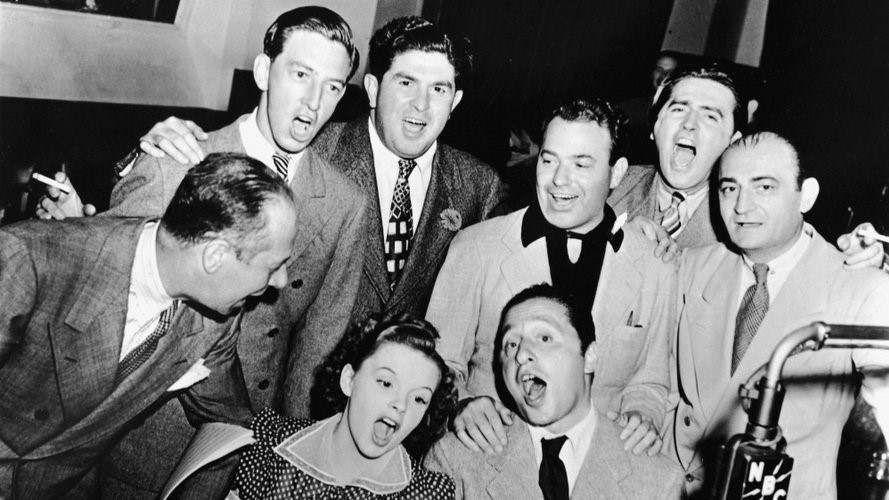
To listen to today’s reflection as a podcast, click here
After the first screening of The Wizard of Oz in 1939, the producers decided to cut two songs.
One was “The Jitterbug,” which was performed in the Haunted Forest by the Scarecrow, the Tin Man, and Dorothy.
And Toto, too, of course.
Another was a song that MGM boss Louis G. Mayer couldn’t stand. In his mind it was painfully slow, and it dragged the whole film down. And if your last name coincides with the second “M” in MGM, you generally get to veto anything that doesn’t live up to your standards.
The second song’s composer, Harold Arlen (that’s him sitting at the piano next to Judy Garland) and lyricist Yip Harburg (with his hands on Arlen’s shoulders) “pleaded, begged, ranted, and clamored” for its inclusion.
So did the other cast members, including Bert Lahr (the Cowardly Lion, far left) and Ray Bolger (standing next to him) who happens to be holding…wait…the Scarecrow is holding a lighted cigarette?
But Mayer wouldn’t budge.
Finally associate producer Arthur Freed approached the boss and said, “Let the boys have the song! It can’t hurt.”
It definitely didn’t hurt.
At the last minute, “Over the Rainbow,” Garland’s iconic solo, was left in the film. It went on to win the Academy Award for Best Song, and was recently voted the Greatest Movie Song of All Time by the American Film Institute.
Can you imagine The Wizard of Oz without “Somewhere Over the Rainbow”?
For that matter, can you imagine Christmas without Christmas songs and carols?
Luke’s version of the birth of Jesus, which dominates the first two chapters of the Gospel that bears his name, doesn’t read like a news report. Or a sermon. Or a documentary. It’s much more like a musical.
Mary literally sings her trust in God. So does Zechariah, the father of John the Baptist. And then there’s that host of singing angels above the fields outside Bethlehem.
Judy Garland looks up at the sky and sings about a place where “the dreams that you dare to dream really do come true.”
The angels look down toward earth and sing, “Glory to God in the highest, and on earth peace to those on whom his favor rests” (Luke 2:14).
God’s decision to walk among us as a human being is God’s assurance that his dreams for the healing of our broken world really will come true.
